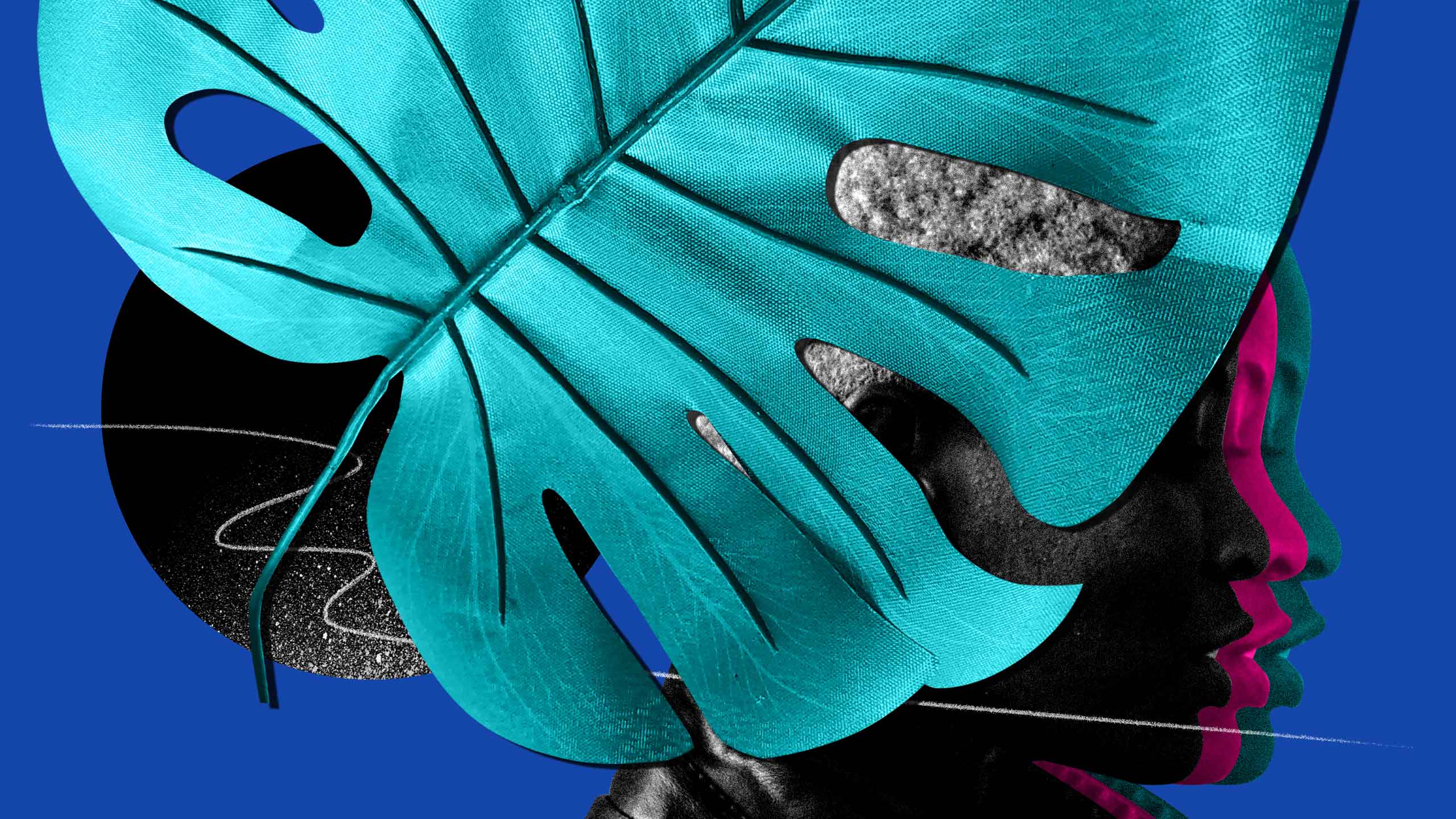All over the world, from the grimiest corners of the internet to the front pages of national newspapers, everyone and their uncle is obsessed with trans people. We’re the discourse du jour. The arguments about us vary in scope and subject, from the constitution of sports teams to the separation of prisoners into gendered cells. Irrelevant children’s book authors pen public letters about us, while miserable social media celebrities set up podcasts to pose tired questions about our lives. The public is mainly interested in three things: Are we dangerous, are we deranged and are we natural?
All three of these questions go hand in hand. We’re deranged because we’re unnatural, and thus we’re dangerous. Or we’re unnatural because we’re dangerous, and thus we’re deranged. The questions of our danger and our derangement will largely be uninteresting to any reasonable person, because these questions are easy to disprove—of course we’re only as deranged as the society that deranges us with its oppression, and we’re far, far more endangered than dangerous. But the argument over whether we’re natural is less cut and dry—not because it’s hard to say whether we’re natural, but because the question itself is incredibly fragile.
The Vatican and some Republican politicians are unafraid to speak openly on the subject, but most of our demonizers characterize us as unnatural in more rhetorically subtle ways. The most popular means of doing so these days is by discussing the unnaturalness of “transgender ideology.” They invoke the ideas of “peer contagion” or “hypnotic ideologies” as a way to raise transness to its most alien form. There is no transness without people, but they would have you forget this. They cast it in abstraction: The “gender identity ideology,” the “transgender ideology.” Our demonizers are very cunning when they do this. They frame transness in a way that allows their audience to consider it as something beyond the human scope, something that approaches humanity from outside of us that comes to us as a thing strange, alien and with malicious intent.
“Our detractors frame transness in a way that allows their audience to consider it as something beyond the human scope.”
A person transgressing the normative boundaries of “male and female” is nothing new. Though the way we currently understand and communicate gender and transness is bound tightly to the present social and political moment, people across history have identified and presented themselves in ways that don’t align with their assigned genders. It’s insincere in the highest degree to refer to transness as a novel ideology that has crash-landed on the earth in this late-capitalist environment like a demented meteor from the outer reaches of deep, dark space.
But if our detractors can frame transness as a disease that approaches us from outside and wants to spread frenetically through its hosts, they can communicate the idea of our unnaturalness in a very frightening, in-your-face way that nonetheless remains rhetorically subtle. There are no trans people here, there is only transness. They don’t call any person unnatural, they only call the “ideology” unnatural. An alien psychic substance running so contrary to the natural social order that if it’s allowed to exist, it will spread wildly and uncontained and eventually take over society entirely.
Within the framework of unnatural, alien transness, the primary hosts for the parasite are assigned-female-at-birth people, while the demons committed to spreading the parasite with their radical transgender activism are assigned-male-at-birth people. The young, vulnerable woman who knows not what she does is the ideal victim. She is conjured and repurposed whenever an exercise in demonization is useful to achieve a political aim—like when Black, Muslim or migrant men need to be villainzed, or when sex work needs to be cast in an unfavourable light.
You can see how this rhetoric over transgender ideology is composed of recycled materials. The framework taps into eternal political and social ideas meant to invoke a primal emotional response. And at its base, it’s the same old anti-queer moral panic that’s always been here. The fear-mongering language of contagion and parasitism is a new spin on the age-old idea of perversion, an action or way of being that supposedly contradicts the natural order of what it is to be human. It’s not enough to simply call us unnatural perverts any longer. You can try—and people do try—but you won’t be evaluated with much seriousness. With decades of queer activism, the interconnectedness of the internet and metropolitan living and a new wave of media that purports to humanize us, it becomes more difficult every day to continue dehumanizing us in these boring old ways.
“To attempt to locate some crumb of tolerance in the ranks of our detractors, we desperately try to show how natural being trans is.”
When facing off with this new-but-not-so-new rhetoric of trans unnaturalness, we argue it along lines that seek to disprove it. We want to show that we are, indeed, quite natural. We bring out well-cited proof of how transness can be located in various species across the earth. We cite studies that investigate the idea of the trans brain or the trans finger, speak up about how it may be wired directly into our biology. We provide evidence that we’ve always been this way, how we’ve always preferred action figures to dolls, or how we wanted to wear dresses even as young children. To attempt to locate some crumb of tolerance in the ranks of our detractors, we desperately try to show how natural being trans really is.
In some ways it’s a sensible and somewhat sound approach. Gender nonconforming behaviours really are found in nature, and some trans people really have felt their difference since birth. But from another angle, it misses the ball entirely. As Alex V Green has noted, the idea of biologically encoded transness is fraught with problems; it reinforces the idea that our genders are determined for us at birth, and opens more avenues for gatekeeping on who is legitimate and who is illegitimate in their transness. And many things that constitute the modern trans experience aren’t really natural—like hormone therapy or gender-affirming surgeries. Our demonizers are aware of this gap in our logic and use it to push back at us. Trans-exclusionary radical feminists, or TERFs, frequently concede that exhibiting gender atypical behaviours is fine, but taking it further to surgical alterations or medical treatments is not okay.
I want to move beyond this endless back-and-forth about whether being trans is natural or unnatural. Let’s consider the thing that both we and our demonizers take for granted: What does it mean to be natural, and why is supposed “naturalness” assumed to be an indicator of value?
What do we even mean when we refer to something as “natural”? From the late 14th century onward, the term has been used to describe something that exists as a result of the forces of nature, in contrast to something that exists as a result of human (or divine!) intervention. This tracks with the way we continue to use it in most contexts today. Think, for instance, of the organic or natural foods movement: In the 21st century, an era driven by hyper-accelerating technology and digitalization, incredible engineering feats and advancements in health care and medicine, do we still find value in this atavistic man-versus-nature framework—within which nature is good and man is sinful? Sinful is the word here, because the dichotomy is a fundamentally religious one. The man-versus-nature binary cannot be reasonably upheld without grounding it in the fall from the Garden of Eden and the original sin of human consciousness.
“At the end of the day, we’re all unnatural: The human unnatural.”
By arguing against allegations of our unnaturalness with proof of our naturalness, we’re agreeing with our vilifiers’ idea that naturalness is somehow significant in the first place. We’re letting them set the framework and then attempting to argue with them within that faulty, fundamentally meaningless framework. If a person were to argue that a rocketship was unnatural, we wouldn’t respond that it was, in fact, natural. We would simply recuse ourselves from the conversation, because it isn’t worth engaging with in any substantial way. Why is it different when we’re speaking about transness?
There’s nothing that separates man from nature in a significant way other than the self-reflective consciousness more or less unique to our species. And sure, transness is probably a symptom of human consciousness—our minds turn upon themselves and think: There is a misstep between how I am perceived and how I feel I am. But the absurdity is located within the fact that being cisgender would also be unnatural. To meditate upon yourself and think, I am perceived as and referred to as a woman, and this is what I am would also be unnatural. To even consider being a woman or a man would be impossible without the zany self-reflective consciousness endemic to our poor species.
At the end of the day, we’re all unnatural: The human unnatural. But it doesn’t matter, because the idea of the natural is a meaningless framework that’s held up with snake oil, fear and prayers. I think it’s okay to let it fall by the wayside. I think it’s okay to stop insisting on our naturalness, which is in essence an insistence on our legibility to the ridiculous binary systems set before us: Man versus nature, male versus female, natural versus unnatural. Let’s not concede to the anxious bristling of these meaningless binaries, let’s not try to calm cisnormative society down by insisting that we’re unthreatening to them. Why not be threatening? Why not be disruptive? Why not be unnatural? As the anonymous collective behind The Xenofeminist Manifesto: A Politics for Alienation argues, “The glorification of ‘nature’ has nothing to offer us… Essentialist naturalism reeks of theology—the sooner it is exorcised, the better.”


 Why you can trust Xtra
Why you can trust Xtra


